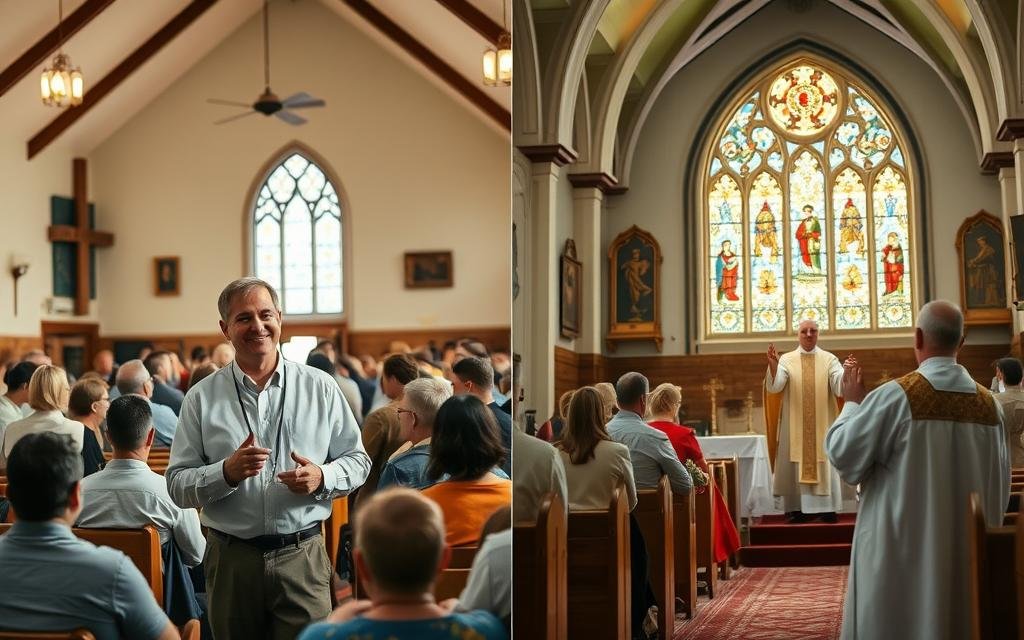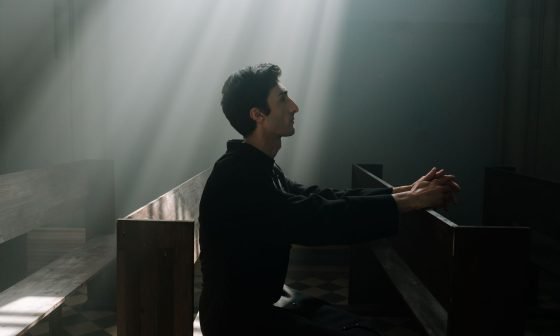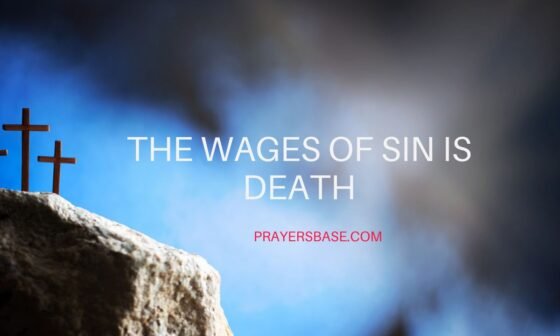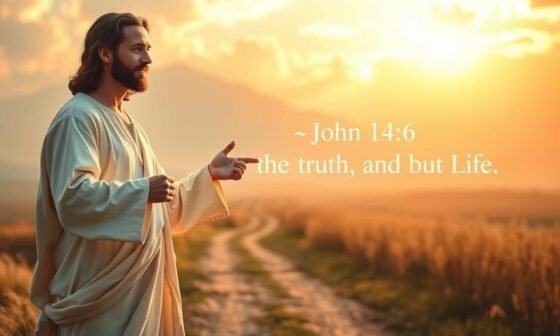What makes a pastor different from a priest? Let’s explore this together. We’ll look at the roles of pastors and priests. We’ll see how they help us grow spiritually.
Let’s dive into their duties. We’ll look at their history and what they do today. This article is for everyone, whether you’re new to faith or have been a member for a long time.
Knowing the differences helps us value what each does for us. Let’s start this journey. We’ll see how pastors and priests help us connect with our faith and community.
Exploring the Differences Between Pastors and Priests
We often wonder about pastors and priests in our Christian communities. It’s key to know their roles. Pastors and priests have different jobs and need different skills.
They lead our churches in different ways. Pastors lead worship, while priests handle special church duties.
Good leaders help our faith grow. By looking at what makes pastors and priests different, we learn more about our faith. This helps our community stay strong and faithful.
Why Understanding the Roles of Pastors and Priests Matters
Knowing the difference between pastors and priests shows their value. Both are important for our spiritual growth and sense of belonging.
The Importance of Leadership in Christian Communities
Leadership in our churches is more than just being in charge. It’s about helping us grow spiritually and feel part of a community. We’ll see how pastors and priests help shape our faith.
Overview of Pastors and Priests in Christianity
In Christianity, pastors and priests are key figures. But their jobs and duties are quite different. By understanding these differences, we see the beauty and variety of our faith.
What is a Pastor?
The word “pastor” originates from the Latin word pastor, meaning “shepherd.” Biblically, pastors are seen as spiritual shepherds who guide and care for their congregations, much like a shepherd tends to their flock. This role is rooted in New Testament teachings, where pastors are called to lead by teaching God’s Word, providing counsel, and nurturing the spiritual growth of their communities.
Key Responsibilities of a Pastor
Pastors typically preach sermons, lead worship services, and oversee church administration. They are deeply involved in their members’ lives, offering guidance, support, and spiritual care. Some key tasks include:
- Preaching and teaching Scripture.
- Offering personal counseling.
- Leading community outreach and evangelism efforts.
- Managing the operational aspects of their churches.
Pastoral Leadership Across Different Denominations
Pastors serve in a variety of Christian traditions, particularly in Protestant denominations such as Baptist, Lutheran, Methodist, and Pentecostal churches. The scope of their roles may differ depending on their denomination’s specific practices, but they are consistently seen as spiritual guides and leaders.
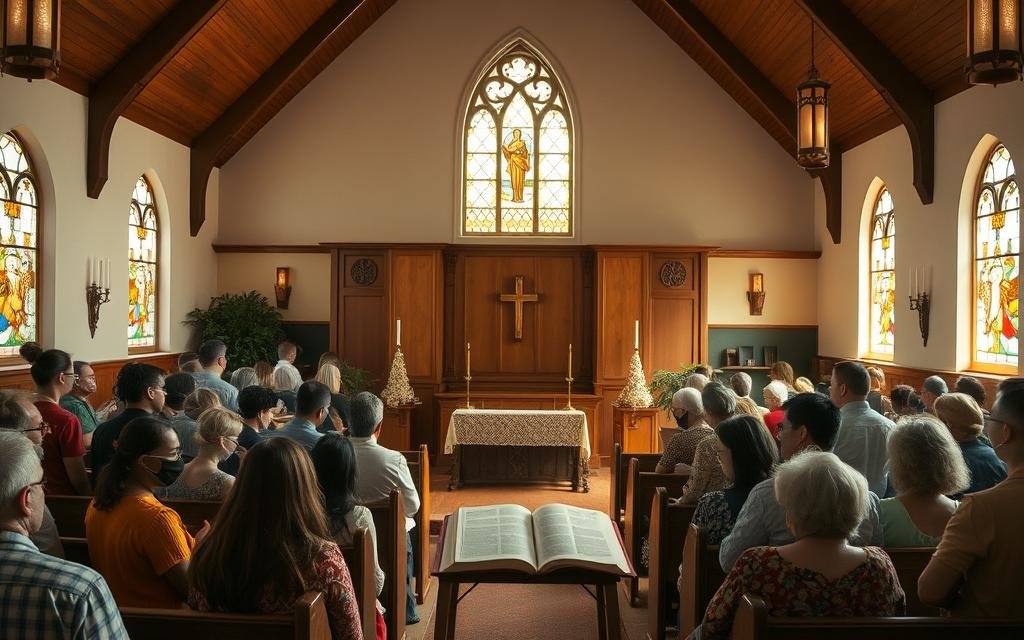
What is a Priest?
The role of a priest has ancient roots, dating back to Old Testament times when priests acted as mediators between God and His people. In the New Testament, the priesthood takes on a deeper meaning within the Catholic and Orthodox traditions, with priests serving as representatives of Christ through their sacramental duties.
Key Responsibilities of a Priest
Priests are responsible for performing sacraments such as the Eucharist, Confession, and Baptism. They play a pivotal role in worship, acting as mediators between the congregation and God. Their duties often include:
- Celebrating Mass and administering sacraments.
- Hearing confessions and offering absolution.
- Providing spiritual direction and pastoral care.
- Upholding church doctrines and traditions.
The Role of Priests in the Catholic and Orthodox Churches
Priests are integral to the hierarchical structure of the Catholic and Orthodox Churches. They work under the authority of a bishop and are committed to preserving the sacramental and liturgical traditions of their faith.
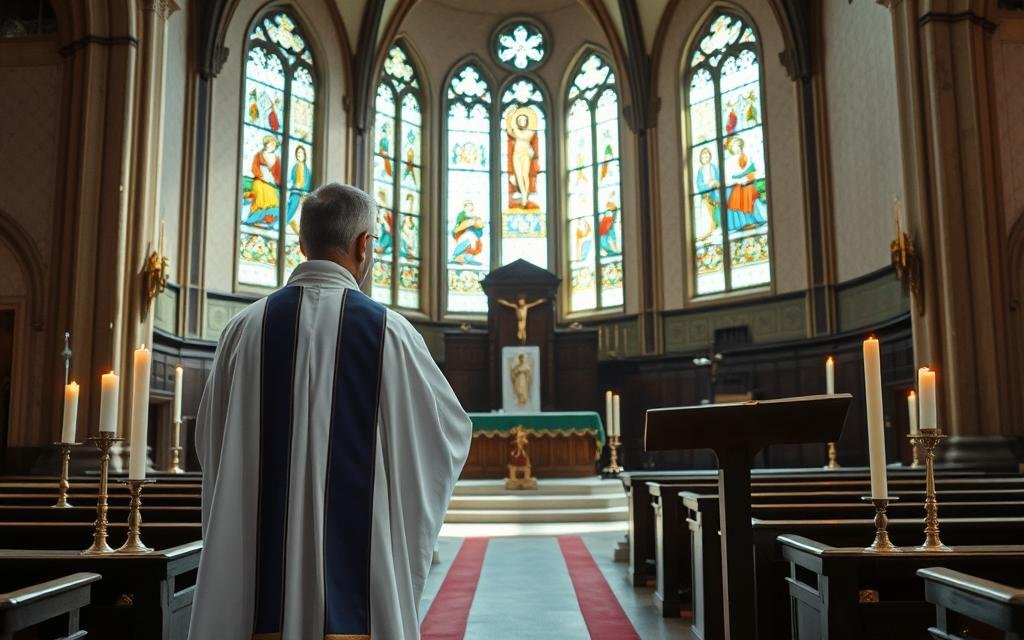
10 Key Differences Between Pastor vs Priest
Let’s look at the roles of pastors and priests. It’s key to know the differences between them. These differences come from their religious background, education, and duties.
1. Religious Denomination and Tradition
- Pastors primarily serve in Protestant denominations, which focus on the direct relationship between individuals and God. Protestant traditions emphasize preaching, teaching, and guiding congregations.
- Priests are central figures in the Catholic and Orthodox Churches, where they act as spiritual mediators through sacraments such as the Eucharist and Confession.
2. Educational and Training Requirements
- Pastors typically undergo formal education, such as theology or divinity degrees, but requirements vary by denomination. Some pastors may be ordained after completing Bible college or seminary, while others are trained within their local churches.
- Priests, especially in the Catholic Church, must complete rigorous seminary training. This includes philosophy, theology, and pastoral studies, often taking up to 8 years before ordination.
3. Roles in Worship and Liturgy
- Pastors lead worship services that focus on sermons and teaching. Their primary goal is to make Scripture accessible and applicable to daily life.
- Priests follow liturgical traditions, particularly in the celebration of the Mass. The liturgy involves rituals such as prayers, hymns, and sacraments, emphasizing a connection to ancient traditions.
4. Sacramental Duties
- Priests administer sacraments such as the Eucharist, Baptism, Confirmation, and Anointing of the Sick. They also hear confessions and offer absolution, acting as mediators of grace.
- Pastors also perform some sacraments, such as Baptism and Communion, but their approach is less formal and does not involve the sacramental theology found in Catholicism.
5. Celibacy and Lifestyle Commitments
- Priests in the Catholic Church are required to take a vow of celibacy, dedicating their lives fully to God and their vocation. Orthodox priests, however, can marry if they do so before ordination.
- Pastors are generally allowed to marry and have families, reflecting Protestant beliefs that marriage and ministry can coexist.
6. Titles and Address
- Priests are formally addressed as “Father” (e.g., Father John) and are seen as spiritual fathers of their congregations.
- Pastors are often addressed by their first name or as “Pastor” (e.g., Pastor Sarah), reflecting a more informal and approachable dynamic.
7. Spiritual Leadership and Administrative Roles
- Priests focus primarily on sacramental duties and spiritual care, often leaving administrative tasks to parish councils or lay leaders.
- Pastors frequently balance spiritual leadership with administrative responsibilities, including budgeting, planning events, and overseeing church operations.
8. Accountability and Hierarchy
- Priests are accountable to their bishops and, ultimately, to the Pope within the Catholic Church hierarchy.
- Pastors often operate independently in non-denominational churches or report to regional boards in denominational settings.
9. Role in Community Outreach and Counseling
- Pastors place a significant emphasis on teaching, counseling, and engaging with their local communities. They often lead outreach programs like food drives, youth groups, and mission trips.
- Priests also serve their communities but often focus on providing sacraments and spiritual guidance over organizing programs.
10. Cultural and Theological Perspectives
- Pastors are often seen as teachers and guides who encourage direct relationships with God through Scripture and personal faith.
- Priests are viewed as intermediaries who facilitate a connection with God through the sacraments and the traditions of the Church.
By looking at these differences, we learn more about their roles. The differences show how diverse Christianity is. They help us see the special things each role offers.
Common Misconceptions About Pastors and Priests
We often wonder about pastors and priests in our Christian communities. It’s key to clear up common mistakes about their roles. One big mix-up is about their pastor vs priest misconceptions and who leads.
Looking at pastor and priest authority, we see they have different jobs. They guide us in worship and spiritual growth. But, some think they do the same things. By learning about their unique roles, we can better appreciate their contributions to our faith.
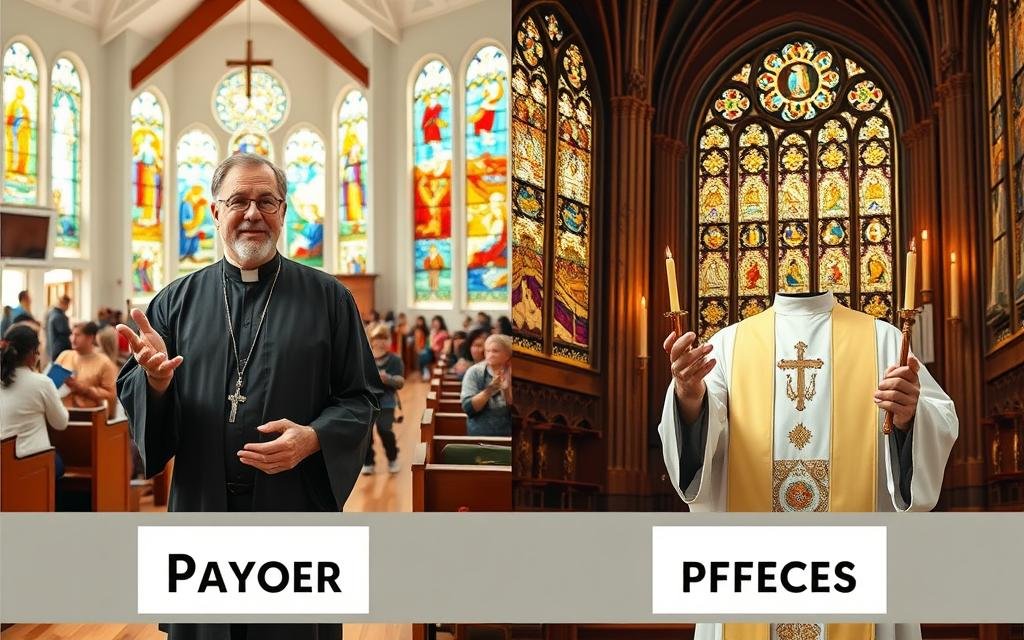
- Confusing the roles of pastors and priests in worship services
- Overlooking the differences in their educational and training requirements
- Misunderstanding their authority and leadership within the church
By clearing up these myths, we get a clearer view of their work. This helps us grow spiritually.
FAQs: Understanding Pastor vs Priest
We often wonder about the roles of pastors and priests. This section answers some common questions. We’ll look at the differences and responsibilities of each role.
1. Can a Pastor Perform the Same Sacraments as a Priest?
Many Christians ask this question. Pastors and priests have similar roles but differ in sacraments. We’ll explain each role in detail.
2. Why Do Priests Take a Vow of Celibacy, But Pastors Don’t?
The vow of celibacy for priests is a big question. We’ll look at the history and biblical reasons behind it.
3. Can Women Be Pastors or Priests?
Many wonder about women’s roles in these positions. We’ll explore the Bible’s view and current practices in churches.
4. Do Pastors Have the Same Level of Authority as Priests?
It’s important to know the authority levels of pastors and priests. We’ll talk about their duties and how they help their communities.
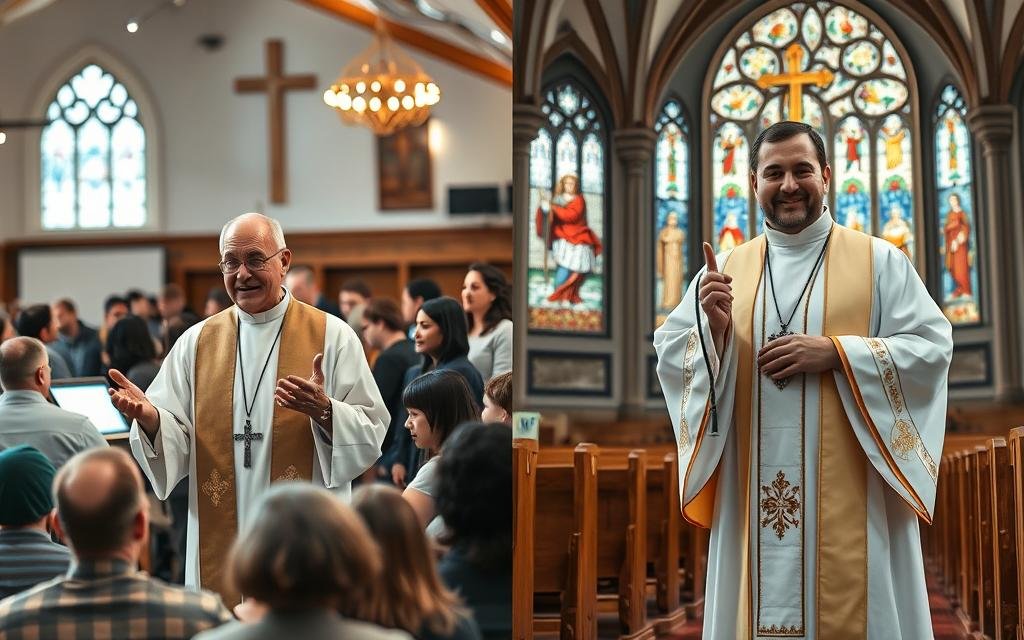
By answering these questions, we hope to deepen our understanding. We want to see the special roles pastors and priests play in the Christian world.
Conclusion
We’ve looked at the special roles of pastors and priests. We see how they help the Christian community grow. Both have important jobs, even though they work in different ways.
Pastors and priests show us the beauty of Christianity. They work hard to help people grow spiritually. Their dedication shows us the power of faith.
Let’s celebrate what pastors and priests do. They help the Christian faith grow strong. Their work inspires us to connect with God more deeply.

